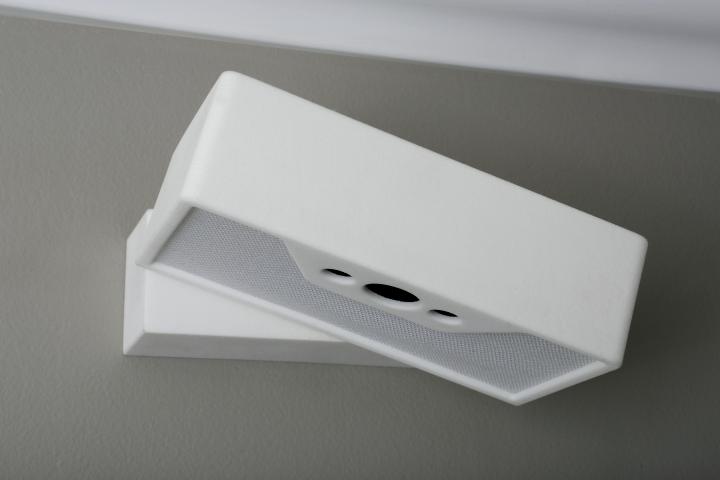
When one person’s alarm goes off, the person sleeping next to them has no choice but to wake up too. Most alarm clocks have no way to selectively wake up one person and leave the other person undisturbed. Until now, that is.
Freshly launched on Kickstarter this week, Wakē is a new breed of alarm that can intelligently target individual users and wake up one sleeper without rousing the other.
Here’s how it works. After it’s mounted to the wall above the bed, the device uses an infrared temperature sensor and special body-tracking software to discern where each person is lying (without a camera, mind you). When it’s time to wake one person up, Wakē silently takes aim, rotates into position, and then directs a tight burst of light and sound at their face.
To keep from rousing the other sleeper, the device uses a set of parametric speakers capable of focusing sound into a narrow beam. Think of it as a spotlight for noise. If Wakē is pointed straight at your head you’ll hear it loud and clear, but if you’re outside of the beam’s small radius, the sound will be extremely faint.
And that’s just one of the tricks this thing has up its sleeve. While the device is primarily designed to be used as an alarm clock, Wakē’s creators, Lucera Labs, have dreamt up a few other functions that could be added in future firmware updates. With some clever programming, Wake could track your sleep patterns to determine when you’re in REM, then hit you with an auditory cue that helps trigger lucid dreaming. How awesome would that be?!
You can currently lock down a Wakē alarm for a pledge of $250 on Kickstarter. If all goes well, Lucera Labs expects to ship the first batch sometime in September.



